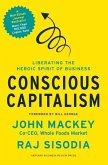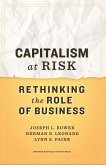The control of competition is designed, at best, to reconcile socioeconomic stability with innovation, and at worst, to keep competitors out of the market. In this respect, the nineteenth century was no more liberal than the eighteenth century. Even during the presumed liberal nineteenth century, legal regulation played a major role in the economy, and the industrial revolution was based on market institutions and organisations formed during the second half of the seventeenth century. If indeed there is a break in the history of capitalism, it should be situated at the turn of the nineteenth and twentieth centuries, with the irruption of mass production, consumption and the welfare state, which introduced new forms of regulation. This book provides a new intellectual, economic and legal history of capitalism from the eighteenth century to the early twentieth century. It analyzes the interaction between economic practices and legal constructions in France and compares the French case with other Western countries during this period, such as the United Kingdom, the United States, Germany and Italy.
Dieser Download kann aus rechtlichen Gründen nur mit Rechnungsadresse in A, B, BG, CY, CZ, D, DK, EW, E, FIN, F, GR, HR, H, IRL, I, LT, L, LR, M, NL, PL, P, R, S, SLO, SK ausgeliefert werden.









